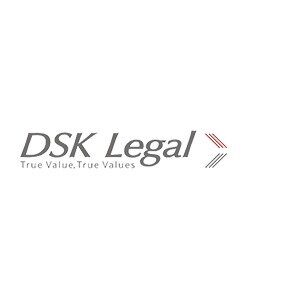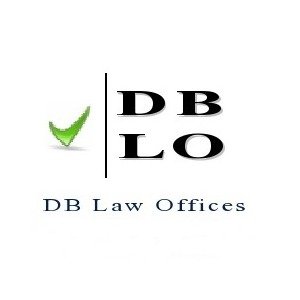Best Banking & Finance Lawyers in New Delhi
Share your needs with us, get contacted by law firms.
Free. Takes 2 min.
List of the best lawyers in New Delhi, India
About Banking & Finance Law in New Delhi, India
Banking & Finance law in New Delhi, India encompasses the legal regulations and practices related to financial institutions, banking transactions, and financial activities. It governs various aspects, including lending practices, banking regulations, debt recovery, consumer protection, and more. These laws aim to maintain stability, transparency, and fairness in the banking and financial sector.
Why You May Need a Lawyer
There are several situations where you may require legal help in the field of Banking & Finance in New Delhi, India. Some common scenarios include:
- Debt-related issues, such as loan defaults, debt recovery, and negotiations with creditors
- Disputes with banks or financial institutions, including issues with account management, transactions, or breach of contract
- Seeking legal advice before entering into complex financial transactions, such as mergers, acquisitions, or investments
- Understanding the legal implications of banking regulations and compliance requirements
- Resolving consumer complaints and disputes related to banking or financial services
Local Laws Overview
In New Delhi, India, several local laws are particularly relevant to Banking & Finance. Here are some key aspects:
- Reserve Bank of India Act: This act governs the functioning and regulation of banks and financial institutions in India, including New Delhi. It empowers the Reserve Bank of India (RBI) to supervise and control banking operations.
- Negotiable Instruments Act: This law regulates the use of negotiable instruments, such as cheques, promissory notes, and bills of exchange, which are commonly used in banking transactions.
- SARFAESI Act: The Securitization and Reconstruction of Financial Assets and Enforcement of Security Interest Act allows banks and financial institutions to recover non-performing assets through measures like asset seizure, auction, and transfer.
- Consumer Protection Act: This act safeguards the rights of consumers availing banking and financial services, providing a legal framework for complaint resolution and compensation.
- Income Tax Act: Relevant for individuals and businesses, this act governs the taxation of income, including earnings from banking and financial activities.
Frequently Asked Questions
1. What should I do if I have difficulty repaying my loans?
If you are facing difficulties repaying loans, it is crucial to seek legal advice promptly. An experienced lawyer can help assess your situation, negotiate with creditors, explore alternative repayment options, or guide you through debt restructuring or insolvency proceedings.
2. Can a bank freeze my account without notice?
In certain circumstances, such as suspected fraudulent activity or legal disputes, a bank may freeze your account temporarily. However, banks are typically required to provide notice and an opportunity to address the issue. If your account has been frozen without sufficient reason or notice, it is advisable to consult a lawyer for guidance.
3. How can I protect myself from unfair banking practices?
Bank consumers can protect themselves by familiarizing themselves with their rights as outlined in the Consumer Protection Act. Additionally, carefully reviewing banking agreements, terms, and conditions can help identify any unfair or exploitative practices. If you believe you have been a victim of unfair banking practices, consult a lawyer to discuss possible legal recourse.
4. What are the obligations of banks towards their customers?
Banks have various obligations towards their customers, including maintaining confidentiality, providing accurate information, protecting customers' interests, and adhering to fair business practices. If you believe a bank has breached its obligations, seek legal advice to understand your rights and potential remedies.
5. Can I file a complaint against a bank or financial institution?
Yes, you can file a complaint against a bank or financial institution if you feel they have acted unfairly, indulged in fraudulent practices, or breached their obligations. Start by approaching the bank's customer service and following their complaint resolution process. If unsatisfied, you may escalate the matter to the banking ombudsman, consumer forums, or seek legal assistance.
Additional Resources
Here are some resources, governmental bodies, and organizations that can be helpful for someone seeking legal advice in Banking & Finance:
- Reserve Bank of India (RBI) - https://www.rbi.org.in/
- Department of Financial Services, Ministry of Finance - http://financialservices.gov.in/
- Consumer Affairs Department, Government of India - http://consumerhelpline.gov.in/
- Bar Council of Delhi - http://delhibarcouncil.com/
Next Steps
If you require legal assistance in the field of Banking & Finance, consider following these steps:
- Gather relevant documentation and details related to your case or concerns.
- Research and shortlist experienced lawyers specializing in Banking & Finance law.
- Schedule consultations with potential lawyers to discuss your situation and assess their expertise.
- Select a lawyer who understands your needs, has relevant experience, and communicates effectively.
- Work closely with the lawyer, providing all necessary information and cooperating through the legal process.
Lawzana helps you find the best lawyers and law firms in New Delhi through a curated and pre-screened list of qualified legal professionals. Our platform offers rankings and detailed profiles of attorneys and law firms, allowing you to compare based on practice areas, including Banking & Finance, experience, and client feedback.
Each profile includes a description of the firm's areas of practice, client reviews, team members and partners, year of establishment, spoken languages, office locations, contact information, social media presence, and any published articles or resources. Most firms on our platform speak English and are experienced in both local and international legal matters.
Get a quote from top-rated law firms in New Delhi, India — quickly, securely, and without unnecessary hassle.
Disclaimer:
The information provided on this page is for general informational purposes only and does not constitute legal advice. While we strive to ensure the accuracy and relevance of the content, legal information may change over time, and interpretations of the law can vary. You should always consult with a qualified legal professional for advice specific to your situation.
We disclaim all liability for actions taken or not taken based on the content of this page. If you believe any information is incorrect or outdated, please contact us, and we will review and update it where appropriate.
Browse banking & finance law firms by service in New Delhi, India
New Delhi, India Attorneys in related practice areas.

















